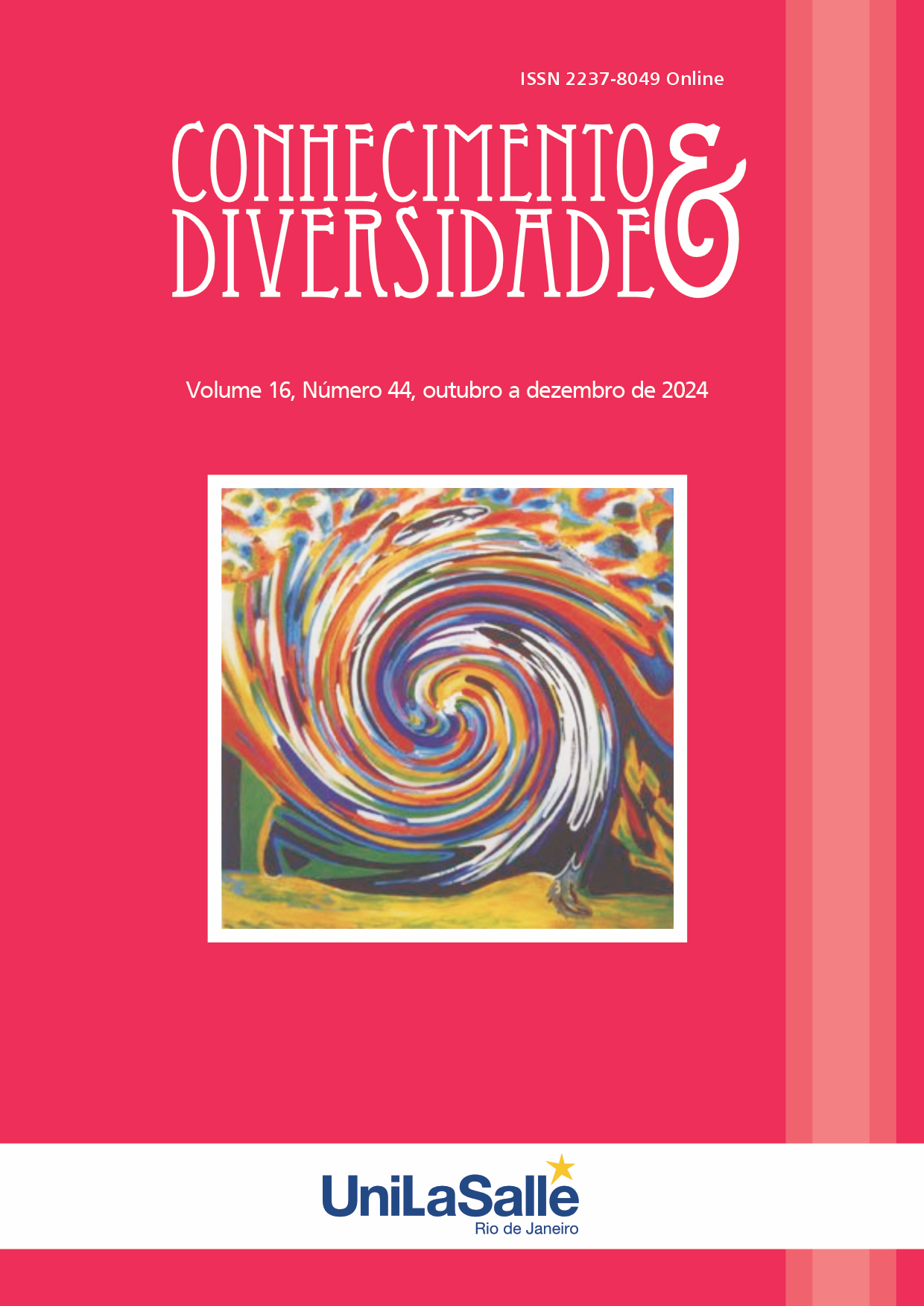VIETNAM’S COMPREHENSIVE EDUCATIONAL REFORM
REFLECTIONS AFTER A DECADE OF IMPLEMENTATION (2013–2024)
DOI:
https://doi.org/10.18316/rcd.v16i44.12285Keywords:
Education Reform, Teacher Quality, Industrialization, International Integration, VietnamAbstract
This study evaluates the progress of Vietnam’s educational reform, initiated under Resolution No. 29-NQ/TW in 2013, which aimed to align the nation’s education system with socio-economic objectives such as industrialization, modernization, and global integration. Using a mixed-methods approach that combines quantitative and qualitative analyses, the research examines achievements, challenges, and limitations across key areas such as learner-centered education, digital transformation, teacher development, and internationalization. Significant progress has been observed, including the universalization of preschool education, improvements in teacher qualifications, and the integration of digital tools, positioning Vietnam as a regional leader in education. However, challenges remain, including insufficient preparation of financial and human resources, inconsistent policy implementation, and the lack of a cohesive educational philosophy. Persistent inequities, outdated teaching methodologies, and limited alignment with labor market demands further constrain reform efforts. The findings emphasize the importance of targeted investments in teacher training, infrastructure, and governance, alongside fostering stronger international partnerships. This study highlights Vietnam’s potential to establish a globally competitive education system and provides actionable recommendations for addressing systemic barriers. The results contribute to global discussions on educational reform in developing nations, offering lessons for sustainable and equitable transformation.
References
Anh, N. N. (2015). Pedagogical Approaches in Viet Nam. In E. H.-F. Law & U. Miura (Eds.), Transforming Teaching and Learning in Asia and the Pacific: Case Studies from Seven Countries (pp. 124-141). UNESCO Office Bangkok. https://unesdoc.unesco.org/ark:/48223/pf0000232909
Beresford, M. (2008). Doi Moi in review: The challenges of building market socialism in Vietnam. Journal of Contemporary Asia, 38(2), 221-243. https://doi.org/10.1080/00472330701822314
Communist Party of Vietnam. (1996). Document of the Eighth National Party Congress. National Political Publishing House.
Communist Party of Vietnam. (2011). Document of the 11th National Party Congress. National Political Publishing House.
Communist Party of Vietnam. (2021). Document of the 13th National Party Congress. Hanoi: National Political Publishing House
Dang Hieu. (2018, Mar 15th). World Bank highly evaluates Vietnam’s education system. Communist Party of Vietnam Newspaper. Retrieved Dec 12th, 2024 from https://dangcongsan.vn/y-te/ngan-hang-the-gioi-danh-gia-cao-ve-he-thong-giao-duc-cua-viet-nam-476538.html
Dawe, D. (2002). The changing structure of the world rice market, 1950–2000. Food Policy, 27(4), 355-370. https://doi.org/10.1016/S0306-9192(02)00038-6
Duong, X. T. (2024, Feb 20th). The picture of education budget through numbers. Vietnam Education Newspaper. Retrieved Dec 16th, 2024 from https://giaoduc.net.vn/buc-tranh-ngan-sach-giao-duc-qua-nhung-con-so-2-post240824.gd
Fforde, A., & Paine, S. H. (2021). The limits of national liberation: Problems of economic management in the Democratic Republic of Vietnam, with a statistical appendix. Routledge. https://doi.org/10.4324/9781003243717
Ha, B. (2014, May 22). Enterprises score students: Theory and practice are both weak. Youth Newspaper. Retrieved Dec 16th, 2024 from https://tuoitre.vn/doanh-nghiep-cham-diem-sinh-vien-ly-thuyet-thuc-hanh-deu-yeu-608573.htm
Ho, L., & Dimmock, C. (2023). Changing teachers’ beliefs and practices towards learner-centred education: experiences and lessons from Vietnam’s education system reforms. PRACTICE, 5(3), 200-219. https://doi.org/10.1080/25783858.2023.2177191
Huong Giang. (2023, Aug 14th). National Assembly Chair: Seriously implement the compilation of a state textbook set. Inspectorate Newspaper. Retrieved Dec 12th, 2024 from https://thanhtra.com.vn/doi-noi-52FA82FBF/chu-tich-quoc-hoi-nghiem-tuc-thuc-hien-bien-soan-mot-bo-sach-giao-khoa-cua-nha-nuoc-7ED473DD.html
Huong, P. L., & Fry, G. W. (2004). Education and economic, political, and social change in Vietnam. Educational Research for Policy and Practice, 3, 199-222. https://doi.org/10.1007/s10671-005-0678-0
Le, H. N. T. (2024). Another Kind of Vietnamization: Language Policies in Higher Education in the Two Vietnams. In L. C. Kelley & G. Sasges (Eds.), Vietnam Over the Long Twentieth Century: Becoming Modern, Going Global (pp. 127-143). Springer. https://doi.org/10.1007/978-981-97-3611-9_7
National Assembly of Vietnam. (2019, Jun 14th). Education Law. Retrieved Dec 12th, 2024 from https://thuvienphapluat.vn/van-ban/Giao-duc/Luat-giao-duc-2019-367665.aspx
Nguyen, P. T., & Nguyen, Q. T. (2024). The philosophy of human emancipation in Ho Chi Minh’s ideas and its contemporary relevance in Vietnam. Kalagatos, 21(1), eK24009. https://revistas.uece.br/index.php/kalagatos/article/view/12513
Nguyen, T. A. (2024). The Internationalization of Higher Education in Vietnam: Impacts of Study Abroad Programs. In N. Kayashima, M. Sugimura, K. Kuroda, & Y. Kitamura (Eds.), Impacts of Study Abroad on Higher Education Development: Examining the Experiences of Faculty at Leading Universities in Southeast Asia (pp. 183-207). Springer. https://doi.org/10.1007/978-981-97-0775-1_10
Nguyen, T. N. T., & Nguyen, T. Q. (2021). Current education of revolutionary ideals for university students in the context of international integration in Vietnam. Nuances-Estudos Sobre Educacao, 32, e021007. https://doi.org/10.32930/NUANCES.V32I00.9120
Nguyen, T. Q., Phung, T. A., & Le, Q. C. (2021). The current education on professional ethics for Vietnamese students. Revista on line de Política e Gestão Educacional, 25(3), 2655–2669. https://doi.org/10.22633/rpge.v25i3.15869
Pham-Duc, B., Tran, T., Trinh, T.-P.-T., Nguyen, T.-T., Nguyen, N.-T., & Le, H.-T.-T. (2022). A spike in the scientific output on social sciences in Vietnam for recent three years: Evidence from bibliometric analysis in Scopus database (2000–2019). Journal of Information Science, 48(5), 623-639. https://doi.org/10.1177/0165551520977447
Pham, C., & Van, H. (2024, Nov 18th). Educational reform requires great efforts and strong breakthroughs. Communist Party of Vietnam Newspaper. Retrieved Dec 12th,2024 from https://dangcongsan.vn/giao-duc/doi-moi-giao-duc-va-dao-tao-doi-hoi-nhung-no-luc-lon-lao-va-su-but-pha-manh-me-683525.html#:~:text=Gi%C3%A1o%20d%E1%BB%A5c%20ph%E1%BB%95%20th%C3%B4ng%20c%E1%BB%A7a,nh%E1%BA%A5t%20tr%C3%AAn%20to%C3%A0n%20th%E1%BA%BF%20gi%E1%BB%9Bi
Phan, A. (2020, Nov 26th). Three Vietnam candidates debut in Asian university ranking. VnExpress. Retrieved Dec 16th, 2024 from https://e.vnexpress.net/news/news/three-vietnam-candidates-debut-in-asian-university-ranking-4197633.html
Quang, N. V., Thanh, N. H., Anh, N. N., Duat, T. N., & Anh, N. D. (2024). Friedrich Engels’s view on theoretical thinking: innovative application by the Communist Party of Vietnam in the reform process. Humanities and Social Sciences Communications, 11(1), 1497. https://doi.org/10.1057/s41599-024-03700-3
Thanh Hang. (2021, Jun 18th). More than 97% of Vietnamese people are literate. VnExpress. Retrieved Dec 12th, 2024 from https://vnexpress.net/hon-97-nguoi-viet-biet-chu-4296185.html#:~:text=T%E1%BB%B7%20l%E1%BB%87%20ng%C6%B0%E1%BB%9Di%20bi%E1%BA%BFt%20ch%E1%BB%AF,2020%2C%20s%C3%A1ng%2018%2F6
Vietnam Government Newspaper. (2024, Jul 16th). Decision on high school graduation exam plan from 2025. Vietnam Government Newspaper. Retrieved Dec 16th, 2024 from https://xaydungchinhsach.chinhphu.vn/toan-van-quyet-dinh-4068-qd-ttg-phuong-an-thi-tot-nghiep-thpt-tu-2025-11923112916510334.htm
Downloads
Published
Issue
Section
License
Copyright (c) 2024 Tuyet Thi Minh Tran

This work is licensed under a Creative Commons Attribution 4.0 International License.
As recommended by the Public Knowledge Project, RCD adopts for its articles a CREATIVE COMMONS Attribution CC BY 4.0 license.
This license allows others to distribute, remix, adapt and build upon your work, even commercially, as long as they credit you for the original creation.
This is the most appropriate license offered.
Recommended for maximum dissemination and use of licensed materials.



